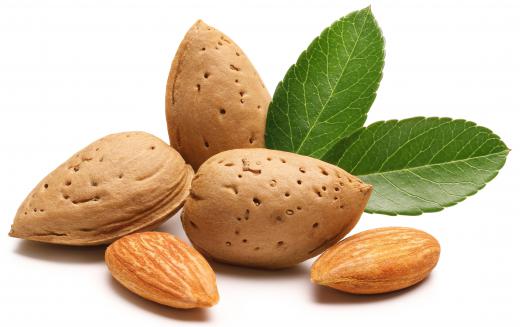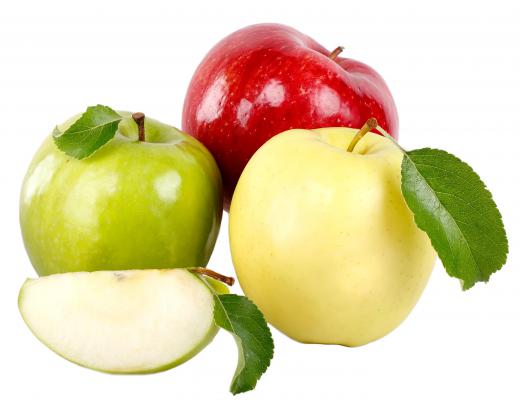What is Pomology?
 Mary McMahon
Mary McMahon
Pomology is a branch of horticulture which focuses on the cultivation, production, harvest, and storage of fruit, especially tree fruits. Fruit orchards can be found all over the world, and tree fruits are a major industry in many countries, making pomology especially vital. Pomologists can work in the industry, or for research facilities at universities and other organizations.
The word “pomology” comes from the Latin word for “apple,” but pomology is about a lot more than just apples. Any number of fruit trees can be included in a survey of pomology, like apricots, pears, plums, peaches, cherries, nectarines, and avocados. Pomologists also research tree nuts like almonds, walnuts, and pecans, among others.

One of the most critical aspects of pomology is the development of new fruit cultivars. A pomologist can cross-breed various fruit cultivars for specifically desired traits, such as flavor, hardiness, or disease-resistance. Pomology has contributed a number of exotic and interesting fruit cultivars to the world, such as the pluot, a cross between a plum and an apricot. If a pomologist can breed a distinctive and entirely new cultivar, he or she stands to profit significantly from the resulting patents.

Pomologists also look at the best way to grow trees, determining which regions trees grow in, and the amounts of water and fertilizer preferred by different cultivars. In addition, they study pests which attack fruit trees, and address issues of regional concern, like droughts or seasonal flooding.
Once a tree fruits, the work of a pomologist isn't over. Pomology is also used to develop new ways to harvest, store, and ship fruit, with a focus on keeping fruit healthy and flavorful until it reaches the consumer. Many cultivars have been specifically bred for easier harvesting and storage, but pomologists also work on things like agricultural equipment and special shipping containers for delicate fruits such as peaches.

Someone who wants to work in the field of pomology generally starts out studying horticulture, with a focus on pomology in the later years of study. Many professional pomologists have a masters or doctoral degree, which includes a thesis in a topic of specific interest, and they are just as comfortable in the field as in the lab (or greenhouse).
AS FEATURED ON:
AS FEATURED ON:

















Discuss this Article
Post your comments